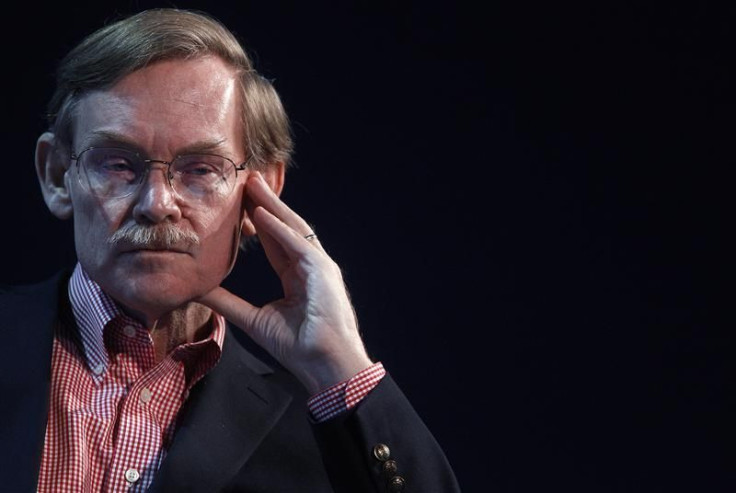World Bank President? 5 Picks for Obama

President Barack Obama has the chance to change world economic development when he selects the next President of the World Bank, the outgrowth of World War II-era plans to use rich counties to spearhead economic growth.
Robert E. Zoellick, 58, a Republican appointed in 2007 by President George W. Bush, announced his retirement. His term ends June 30. Zoellick was Bush's second candidate after his predecessor. Paul Wolfowitz, the former deputy defense secretary, resigned in a sex scandal.
By custom, the U.S. appoints the World Bank president while Europe designates the director of the companion International Monetary Fund. France's Christine Lagarde replaced Dominique Strauss-Kahn last year, shortly after his arrest for alleged rape in New York. He was subsequently cleared.
Obama's first choice for the job is no longer living: that would be Stanley Ann Dunham, whose pioneering work in anthropology, especially in how rural women created handicraft markets in Indonesia and developed rural economies, was later acknowledged to be groundbreaking.
Dunham, the president's mother, died in 1995. Part of Obama's childhood was spent in Indonesia as she pursued her doctoral work for the University of Hawaii.
Two other candidates were cited immediately: Secretary of State Hillary Clinton, 64, who has no economics background, and former Treasury secretary Larry Summers, 57, a former Obama adviser, whose stupid remarks about women and science while he was president of Harvard University would likely disqualify him.
Issues of intrinsic aptitude mean there are fewer women than men in science, said Summers, a well-regarded economist and nephew of two Nobel laureates in economics. The remarks led to his Harvard resignation. Summers was succeeded by historiian Drew Gilpin Faust, Harvard's first woman president.
Here are five more realistic candidates:
John Kerry. The Massachusetts senator who was the Democratic candidate for President against Bush in 2004, would be a good bet. Kerry, 68, has long wanted a seat on the global stage and now serves as Chairman of the Senate Foreign Relations Committee.
A seat at the World Bank, though, would give Kerry a classy finish to his political career and move him into issues he cares about, such as health and development on a world level. He also would be instantly acceptable to other governments.
Christina Romer, 53, is a professor of economics at the University of California, Berkeley, where she returned following service as Chairperson of the Council of Economic Advisers in Obama's first year.
Romer would be the first woman World Bank chief as well as the first academic. Most others, like Zoellick, Robert McNamara or Eugene Black, have come from government but with business backgrounds.
Joe Biden. The Vice President, 69, isn't going to be President, so sending him to the World Bank could cap his career as well as give Obama the choice to pick a new running mate. While this would be a huge political shift, Biden, like Kerry, has had years of interest in foreign relations and headed the foreign relations committee in two periods under the second Bush.
Sending Biden to the World Bank might enhance the institution's stature and conceivably shift its mission to 21st century goals. To be sure, Biden lacks executive ability, although as Vice President, he helped shepherd through tricky nuclear arms treaties with Russia and other matters.
Timothy F. Geithner. The Secretary of the Treasury, Geithner, 50, has spent virtually his entire life in government service, never working on Wall Street, including service at the U.S. embassy in Japan.
The Dartmouth graduate said last month he wouldn't serve another term as treasury secretary but didn't specify his future plans. The salary, $441,980 plus $284,500 in other benefits, is higher than his treasury pay.
Geithner, too, would need no introduction to other world leaders or members of the business community.
Michael Bloomberg. The New York mayor, 70, might eye this as a cap to his career after becoming a billionaire on Wall Street via his Bloomberg LP information company, then service as three-term Mayor of New York.
Bloomberg, whose term expires in 2013, has said he wants to spend his next period doing foundation work but presumably could be enticed to run the World Bank. A Democrat-turned-Republican-turned-independent, Bloomberg might be an appealing choice for Obama, although he's hardly been known as having an interest in poverty and development, spending much of his political capital on education.
Bloomberg wouldn't have to make public all his finances, either, because confirmation comes from the bank's board of governors, not the U.S. Senate. Nelson A. Rockefeller, the former governor of New York, had to make public all his financial data when President Gerald Ford nominated him for Vice President in 1974.
© Copyright IBTimes 2024. All rights reserved.






















